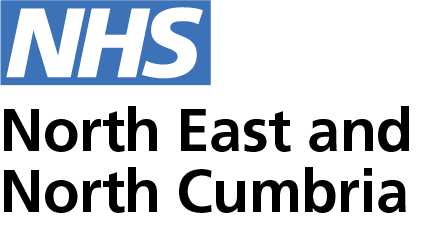North East and North Cumbria hospitals innovate to reduce waiting list backlog
Hospitals in the North East and North Cumbria are outperforming the national average as they tackle elective care waiting lists caused by Covid-19.
New NHS figures show that the number of patients in the region waiting more than 78 weeks for operations has dropped by more than 80% since the height of the pandemic, while hospitals have developed a string of initiatives to help patients get the care they need more quickly.
Under huge Covid pressures in August 2021, the region had 4,673 patients who had waited more than 78 weeks for treatment, but this figure is now down to 919. Waits of more than 104 weeks, which did not happen at all before the pandemic, rose to 564 in October 2021 but have now been almost eliminated.
Dr Neil O'Brien, Medical Director at the NHS's North East and North Cumbria Integrated Care Board (ICB), said: "Nobody wants to see patients waiting too long for treatment, so it's great to see the number of long waits coming down. Staff are still working incredibly hard, and working smarter than ever thanks to a whole range of innovations.
"Emergency surgery and cancer treatment never stopped, but hospitals were instructed to pause outpatient appointments and non-urgent surgery to focus on fighting the pandemic. We still have a long way to go, but our staff deserve a huge vote of thanks for the progress we have made.
"It's still a difficult time for the NHS, but our region can be proud that we're tackling waiting lists together across our hospitals as well as doing better than the national average for A&E performance and diagnostic targets."
Across the region, a range of innovations are transforming the way many patients are treated, speeding up treatment as well as freeing up operating theatre time.
Middlesbrough's James Cook hospital has recently become the first in the UK to pioneer uniportal robotic lung surgery, an advanced technique that can remove multiple lung tumours with a single incision – with many patients up and walking about the same day.
Northumbria Healthcare NHS Foundation Trust has improved efficiency and patient experience with a £5.5m upgrade of operating theatres at Wansbeck Hospital, as well as using a new state-of-the-art laser treatment for bladder cancer tumours – which can now be carried out as an outpatient procedure.
A new £24 million day treatment centre at Newcastle's Freeman Hospital will make it possible for many less complex procedures to be carried out as day cases. This will include cartilage and joint repairs for knees and hips, injections to manage pain, and treatment for bladder and kidney problems, hernias and minor plastic surgery, freeing up thousands of operating theatre slots for more complex operations.
South Tyneside and Sunderland NHS Foundation Trust has invested £10 million in a state-of-the-art Integrated Diagnostic Centre. The new facility located at South Tyneside District Hospital will include world-class MRI and CT scanning equipment. It will also include a PET-CT scanner, meaning patients will no longer need to travel to Newcastle or Middlesbrough if they have a suspected cancer diagnosis.
A new digital endoscopy one-stop shop at University Hospital of North Tees means many patients can be examined as outpatients, avoiding hospital admission and potentially speeding up diagnoses of cancer. For some patients, the Hartlepool hospital is now able to provide knee surgery or hip replacements as day cases, with the patient discharged the same day as surgery.
Among the initiatives developed at County Durham and Darlington NHS Foundation Trust is a new Wellbeing for the Time Being team, which offers patients extra support while they are on the waiting list for surgery. Hospitals across the region are also working together to extend 'waiting well' support more widely.
Increased use of video consultations across the region, where appropriate, is also helping patients avoid unnecessary hospital visits for routine appointments.
